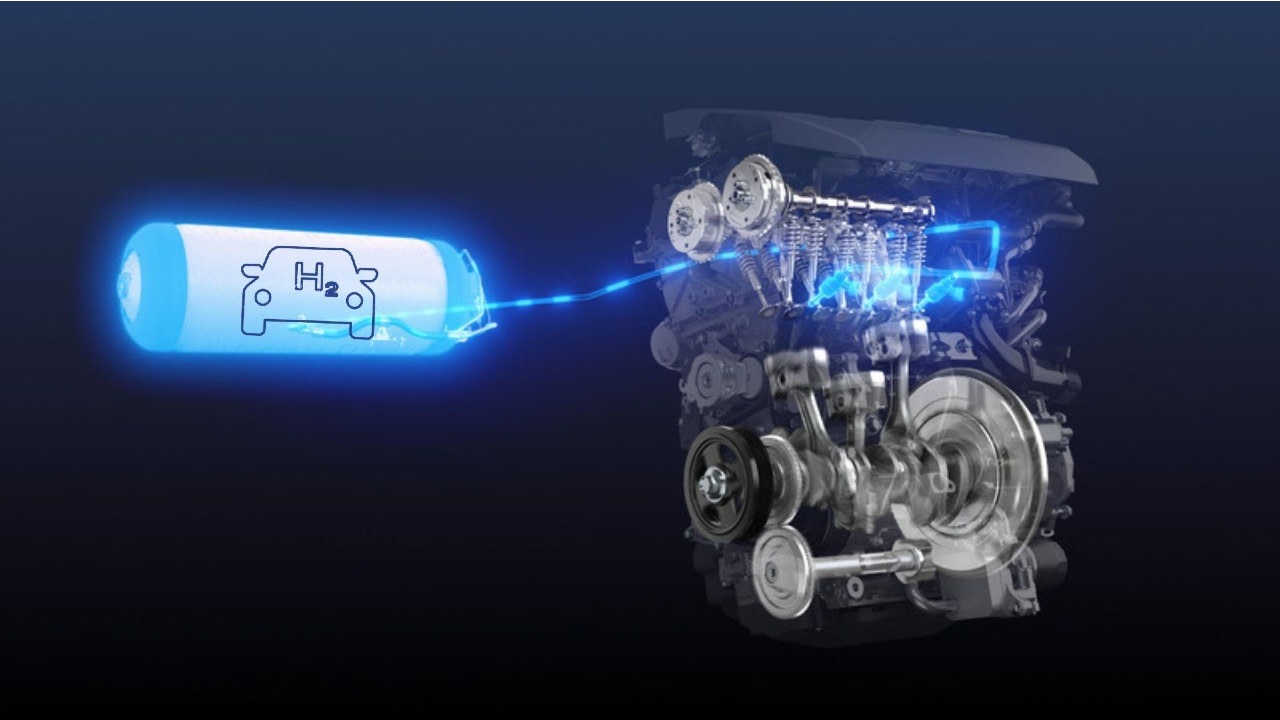Patent documents reveal Ford is experimenting with hydrogen combustion engines. Not to be confused with fuel cell powertrains, the patent is for a conventional internal-combustion engine that would simply burn hydrogen in place of gasoline or diesel, a process that would result in zero harmful emissions.
A patent application filed with the United States Patent and Trademark Office (USPTO) describes a method of hydrogen combustion in concert with turbocharging and exhaust gas recirculation. Notably, such a hydrogen engine would be capable of operating with a much leaner mixture than conventional gasoline engines.
In the application, Ford also suggests a hydrogen engine could be used as part of a hybrid powertrain, with an electric motor-generator placed between the engine and transmission.
Hydrogen combustion engines are nothing new. In the early 2000s, BMW produced the Hydrogen 7, a 7-Series sedan with a hydrogen-powered V-12. More recently, Toyota and Yamaha partnered on the development of a hydrogen racing engine for the Japanese Super Taikyu series. The two companies plan to follow that up with a hydrogen V-8 based on the 5.0-liter unit from the Lexus RC F.
Toyota has said it hopes hydrogen can address the environmental impact of combustion engines, allowing them to stay around for driving enthusiasts to enjoy. Perhaps Ford is thinking the same thing.
The company’s engine should be capable of operating across a wide range of air/fuel lambda values. Just like in a standard modern internal combustion engine, exhaust gas recirculation (EGR) and valve timing would be used to control the combustion process. According to the available information, the engine would be capable of lambda values in excess of 2.00, which would mean an air/fuel mix of at least 68 parts air to 1 part hydrogen. For comparison, a gasoline engine can vary between 0.54 lambda and 1.25 lambda.
The patent also includes direct injection for delivering hydrogen to the cylinders and, theoretically, supplying hydrogen through direct injection could produce up to 15 percent more power than an equivalent gasoline engine. In Ford’s patent, the hydrogen combustion engine is also seen as a part of a hybrid powertrain with a motor-generator positioned between the engine and the transmission. It’s important to note, however, that the Blue oval’s patent only covers the method of combusting and controlling hydrogen mixtures, not the entire engine.


